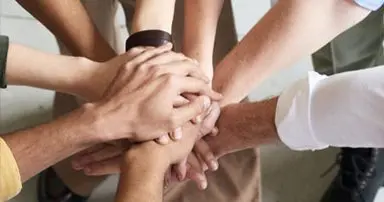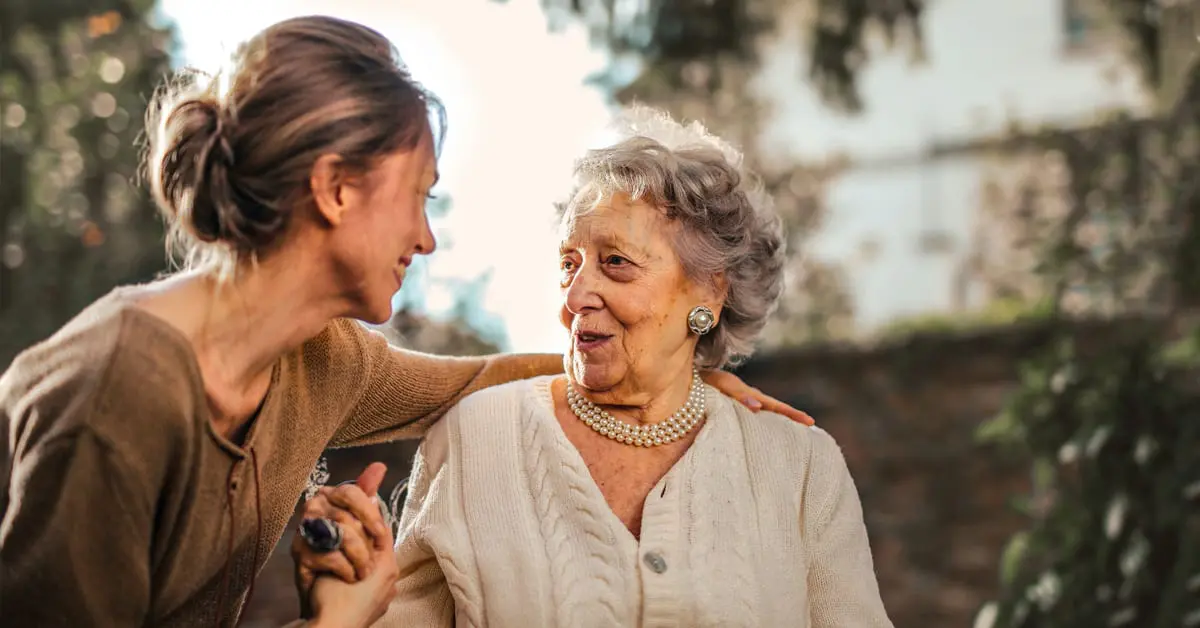Older adults are among the most vulnerable when disaster strikes. That’s why it’s critical that older people, and those who care for them, prepare for emergencies. If you’re an older adult, or care for an older person, follow the steps below to prepare for and respond in an emergency.
BACKGROUND
These are the critical components to any effective natural disaster preparedness plan. 1. Staying Informed Staying informed is especially important for elderly emergency preparedness. If they don’t have cable or a smartphone, there are a number of tactics you can employ to ensure your loved one stays informed:
1. Staying Informed
- Invest in a battery-powered radio (or a hand-cranked radio, if they are physically able) and make sure it’s tuned to the right channel so they can stay updated on their own.
- If you live in the area, pay them a visit, or better yet, have them stay at your place.
- If you don’t live nearby, reach out to them as soon as you know a storm is on the way, and keep in touch with updates about the storm’s path and severity, especially if evacuation orders may fall.
- Contact your senior’s support network so you can work together to keep your loved one informed and safe throughout the disaster.
2. Packing a Senior Emergency Kit
Your senior’s emergency kit, just like yours, should last for a minimum of three days. For seniors, you could consider creating two emergency kits: one for staying at home, and a go-bag designed to travel with your senior if they are required to evacuate. Label them both so that it’s clear which is which.
A KIT should contain:
- 3 day supplies of non-perishable food and water (1 gallon per person per day)
- Battery-powered radio, plus extra batteries
- Flashlight, plus extra batteries
- First aid kit
- Sanitation and hygiene items
- Matches and candles, stored in a waterproof container
- Extra clothes
- Extra eyeglasses
- Extra batteries for medical supplies like hearing aids or blood sugar monitors
- Blankets
- Basic kitchen utensils, including a manual can opener
- Multi-purpose tool like a pocket knife
- Cash and coin
- Whistle
- Medications and supplies for medical devices like blood sugar monitors — at least a 7 day supply,ideally more
- Record of medical conditions, allergies, and current medications, stored in a waterproof container
- Pet food and supplies for managing pet waste
A Go-to Bag should contain:
- Car and house keys
- First aid kit
- Sanitation and hygiene items
- A change of clothes
- Extra eyeglasses
- Extra batteries for medical supplies like hearing aids
- Cash and coin
- Medications and medical devices
- Records of medical devices (including device type and model number), medical conditions, allergies, and current medications, stored in a waterproof bag or container
- Duplicates of important documents such as passports, drivers licenses, social security, wills, deeds, financial statements, and insurance information, stored in a waterproof bag or container
Make sure your loved one knows where they can find their senior emergency kit and/or go-bag, as well as what supplies are in it.
MEDICAL RECORDS. Your senior should have a copy of medical conditions, allergies, and current medications with them at all times during a natural disaster, whether they choose to stay in their home or are required to evacuate. You should also keep your own copy, especially if you live outside of the flood or danger zone. These records should include:
- Names and dosage amounts for all medications
- Doctors names and locations, including phone numbers
- Pharmacy names and locations, including phone numbers
- Special instructions for care and comfort if your loved one has trouble communicating
- Emergency contact information
- Blood type
- Duplicates of important documents such as passports, drivers licenses, social security, wills, deeds, financial statements, and insurance information, stored in a waterproof bag or container
- A list of medical devices, including type and model number
- Personal care assistance plan
3. Create a Plan now for how you’ll handle a disaster.
When you’re creating an emergency plan for your senior, reach out to friends, neighbors, and nearby relatives who can be called upon to lend a hand when disaster hits. Explain your loved one’s needs so they know how best to help, and keep a list of current contact information near your loved one’s phone so they can reach out when necessary, including local contact numbers for nearby CORAC volunteers.
If your senior needs help with normal daily activities, it might be time to consider assisted living. Find assisted living options near you at caring.com. If your senior is concerned about their valuable or cherished belongings, such as heirlooms or antique furniture, a reputable shipping company can also help you ship them into storage.
4. Staying at home.
Often, the safest option for seniors is to evacuate, and to evacuate sooner rather than later. If they wait too long, they may be unable to evacuate when the time comes, especially if they require assistance.
If your loved one is unable to evacuate and they have special medical needs, such as an oxygen tank or dialysis machine, make sure their power company knows so their home can be prioritized when power is restored. You may also wish to consider investing in a portable generator to keep these machines running.
5. Evacuating.
The best evacuation option for your senior is to stay with family or friends in the area (or out of the area, if possible). If this option is unavailable, staying in a hotel may be a good alternative. Weathering the storm in emergency public shelters should be your last resort. Often, these shelters are not equipped for people with special needs; however most coastal areas do have shelters that are capable of handling evacuees with special needs, so do your research ahead of time to find out where these shelters are located. Create a plan for how your senior can get there, especially if they can’t drive themselves, and ensure there’s a caregiver nearby who can stay with your senior throughout the evacuation.
If your loved one has special medical needs and your doctor recommends evacuating to a hospital or other medical facility, you will need to arrange for preadmittance prior to evacuation. To do this, you will need to obtain a pre-admission letter from your doctor that says your loved one is to be taken to a specific hospital or nursing home. Make sure your senior has this letter on them when they evacuate..
6. Pets
If your loved one has a pet, make sure they are microchipped so they are easier to find if they get separated during the evacuation process. For seniors with pets, staying with other family and friends is most likely their best option, though staying in a hotel that allows pets may be a suitable alternative if there are no family or friends nearby. Public emergency shelters don’t allow pets, aside from service animals.
If the option is available to you and your senior, you could also consider boarding their pet.
Research out-of-town options along your planned evacuation route, and be sure to call early to ensure they have room before you drop off their pet. Include vaccination records and other important paperwork, as well as pet care supplies like a leash and an adequate supply of pet food, in your senior’s emergency kit.
7. Keeping seniors calm.
When you have time to prepare for how you’ll handle a natural disaster, you and your senior also have time to worry—whether or not a storm is on the way. Creating a plan ahead of time can help everyone feel ready to weather the storm, which reduces stress as well as the likelihood that your senior will feel isolated if and when disaster does strike. If a storm is on the way, there are a couple of things you can do to keep your seniors calm:
- Stay in touch. Give them a call 2 or 3 times a day in the days leading up to the storm, or more depending on the severity of the event.
- Maintain regular routines, meal patterns, and sleep schedules as much as possible.
- Avoid 24 hour news programs about the impending disaster.
- Seek out positive activities to pass the time, such as games or other things they enjoy If they are able, your senior could seek out volunteer activities and provide assistance to others. Finding ways to contribute often helps to alleviate some of the feelings of helplessness.

























0 Comments